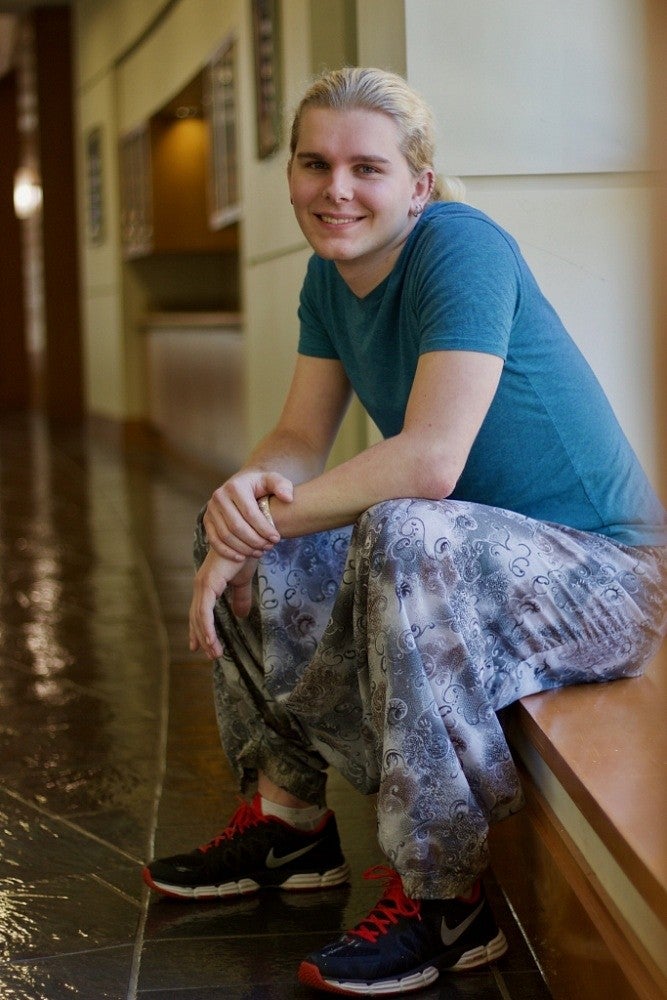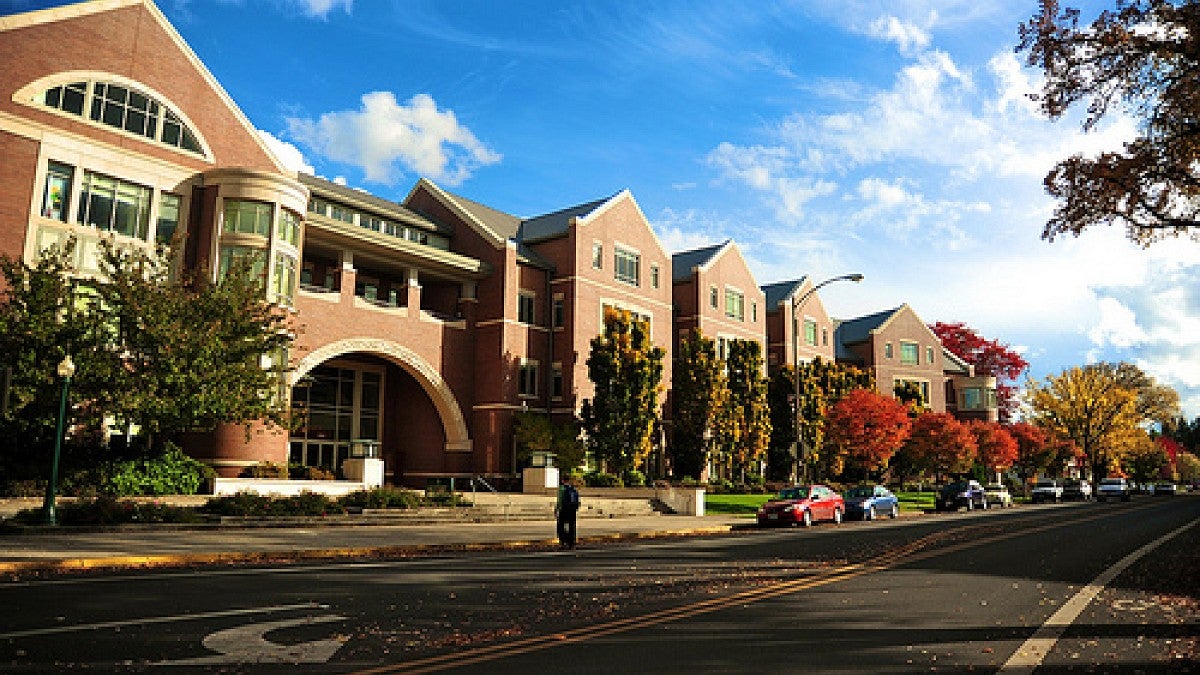Clark Honors College students Nicole Meyers and Justin Ambron will be the first to complete their undergraduate degrees a year early as part of the 3+3 Program that, in partnership with the University of Oregon School of Law, allows honors college students to earn both a bachelor’s degree and Juris Doctor in six consecutive years.

To qualify for the program students must complete their major’s coursework, as well as honors college graduation requirements, by the end of their third year. The one exception is the honors college thesis, which students can complete while enrolled at Oregon Law, and which will also count toward the law school’s writing requirement.
Their involvement in the 3+3 Program is not the only thing Meyers and Ambron have in common. Despite not knowing each other, both are psychology majors whose career aspirations were far from the legal world before they took courses at the UO. Meyers dreamed of becoming the pope until middle school, and when Ambron’s high school teacher said he could be an attorney, he replied skeptically, “Yeah, right.”
Law school first sparked Meyers’ when she took the Clark Honors College’s Inside-Out Program in the fall. She said the experience of taking a class and having discussions with incarcerated men and women gave her a new perspective on the justice system and sparked an interest in criminal law. She consequently took a course titled Psychology and Law last term, which looked at the psychology behind legal processes like jury selections and criminal interrogations.
“Everything with law has some psychological process behind it,” she said.
Oregon Law’s renowned Legal Research and Writing program is therefore of particular interest to Meyers, but she said she hasn’t chosen a focus quite yet.
“I’ve been looking at the classes they have, and I literally want to take every single one,” she said. “Which is a good problem to have, I guess.”
The Inside-Out Program was similarly transformative for Ambron, who plans to focus on criminal law and social justice once he begins law courses in the fall.
“You rarely get to see the perspective that these people have,” he said, referring to the inmates in the program with whom he took classes. Seeing how they reflected on their crimes and felt remorse for breaking the law led Ambron to become especially interested in prisoners’ rights, something he plans to continue studying over the next three years.
After completing his law degree, Ambron wants to eventually pursue a master's in the law school’s conflict resolution program, another top-ranked focus at the law school. He believes that dialogic conflict resolution can be more effective at negotiating a compromise so both sides can reconcile.
“When you have a conversation between two people, you can understand each other’s motives,” he says. “It’s cathartic.”
For those considering the 3+3 Program, Meyers has some advice: “If you have even an inkling that you may want to go to law school, don’t be afraid.” She says while applying to any graduate program can be intimidating, the faculty at Oregon Law have been supportive of her throughout the process.
“I haven’t even started, and I’m already very impressed with how connected they’ve made me feel with the law school,” she said.
Honors college students who have questions or who want to apply for the program should speak with Elizabeth Raisanen, director of undergraduate advising, at raisanen@uoregon.edu.
— By Derek Maiolo, Clark Honors College multimedia communications assistant


